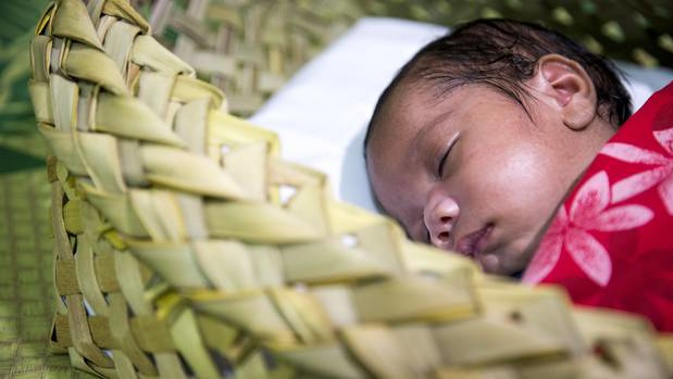
Maori and Pacific Island babies with a rare but potentially fatal heart defect are less likely to survive than their Pakeha counterparts — a finding that has led researchers to question their healthcare.
A study out of the University of Auckland-based Liggins Institute also found European babies were more likely to have the condition, called congenital critical left heart obstruction, or LHO, in which the left side of a baby's heart does not form properly.
Liggins neonatologist Dr Elza Cloete and colleagues looked at nine years of statistics to find incidence of LHO was highest in European foetuses and babies — a rate of 0.59 per 1000 — followed by Maori (0.31 per 1000) and Pacific (0.27 per 1000).
Despite that, survival to one year was highest in European babies at 58 per cent, compared with 44 per cent for Maori and 41 per cent for Pacific.
"Where families lived — and their ability to travel to the country's paediatric cardiac intervention centre at Starship hospital — could also influence outcomes, as could differences in socioeconomic status, health literacy and disease severity.
"We also have to consider the possibility of healthcare-provider bias," she said.
"Much has been written about unconscious bias in medicine.
"When health professionals counsel families, we may guide them towards the decision that we think is appropriate for them based on our own bias, rather than present them with all the options that will allow them to make the best decision for their family.
"Those biases may be shaped by our own religious beliefs, cultural awareness, and societal influences ... or perhaps previous experiences."
On the other hand, she added, differences in the incidence of these heart defects suggested a genetic component.
/arc-anglerfish-syd-prod-nzme.s3.amazonaws.com/public/NZY2RTVCA5B2PEOEX6E5QOAS4Q.jpg)
"We also have to consider the possibility of healthcare provider bias," says Dr Elza Cloete. Photo / Supplied
"We know that the risk of LHO is higher among close relatives of an affected person."
Collaborator Dr Tom Gentles, director of Starship's national paediatric cardiac service, said the condition was rare but affected families profoundly.
"These types of conditions are very difficult for families to cope with and adjust to," he said.
"Making a diagnosis during pregnancy places a great deal of stress on mothers and families, but it does mean that families are aware of treatment options at an early stage."
If a diagnosis was not made before birth, babies became very sick.
"They may die before they can be treated, their recovery may be much more complicated and prolonged, and of course their family will be in shock given the unexpected events," Gentles said.
Starship recently introduced a dedicated team to work with healthcare services to monitor and support caregivers of babies with LHO. Early results suggested this initiative had improved survival in these fragile infants.
Instances of LHO
European 0.59*
Maori 0.31
Pacific 0.27
Survival rates
European 58%
Maori 44%
Pacific 41%
* Per 1000
Take your Radio, Podcasts and Music with you








